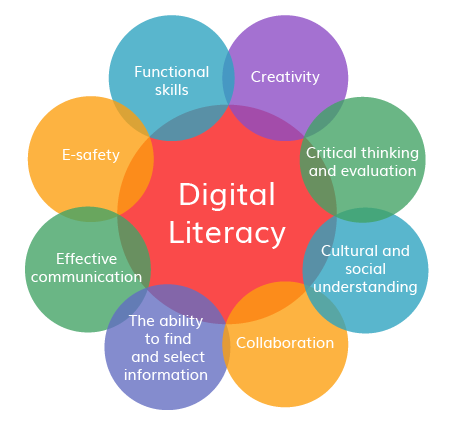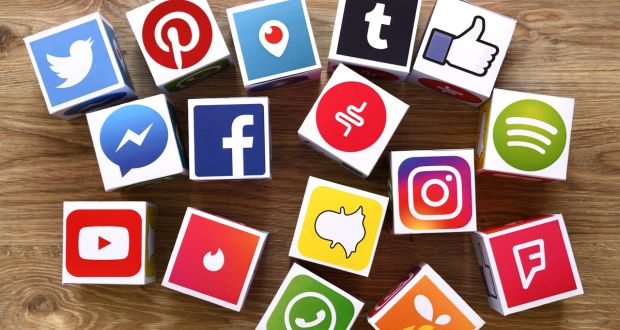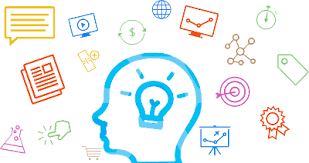What is Digital Literacy?
The American Library Association (ALA) defines digital literacy as “the ability to use information and communication technologies to find, evaluate, create, and communicate information, requiring both cognitive and technical skills.”

In this class we will be focusing on the following objectives:
- distinguish between trustworthy and untrustworthy information
- use digital resources ethically in my own work
- and reflect on how our relationships are affected by our devices and social media.
Why is Digital Literacy so Important?

In today’s digital world, nearly every career requires digital communication at some point, so it is important to know how to find and consume digital content, how to create, communicate, and share digital content. Building on your digital literacy skills will require us to learn:
- the basics of internet safety such as creating strong passwords,
- understanding and using privacy settings,
- and knowing what to share or not on social media.
How Digital Literacy Helps You Become Self-Aware?
On your journey to becoming digitally literate you continuously ask yourself these questions:
- Who created the message and why?
- Where is the message being distributed and which techniques are being used to attract attention?

You learn to identify dubious claims and slanted viewpoints and to assess the accuracy of charts, graphics, and other data sources. You also question the points of view, lifestyles, and values that may be represented, or missing, from the content.
Most importantly, part of effectively finding and consuming digital content focuses on how well you can discern facts from misinformation and determine trustworthy sources.
Resource: Renaissance Website